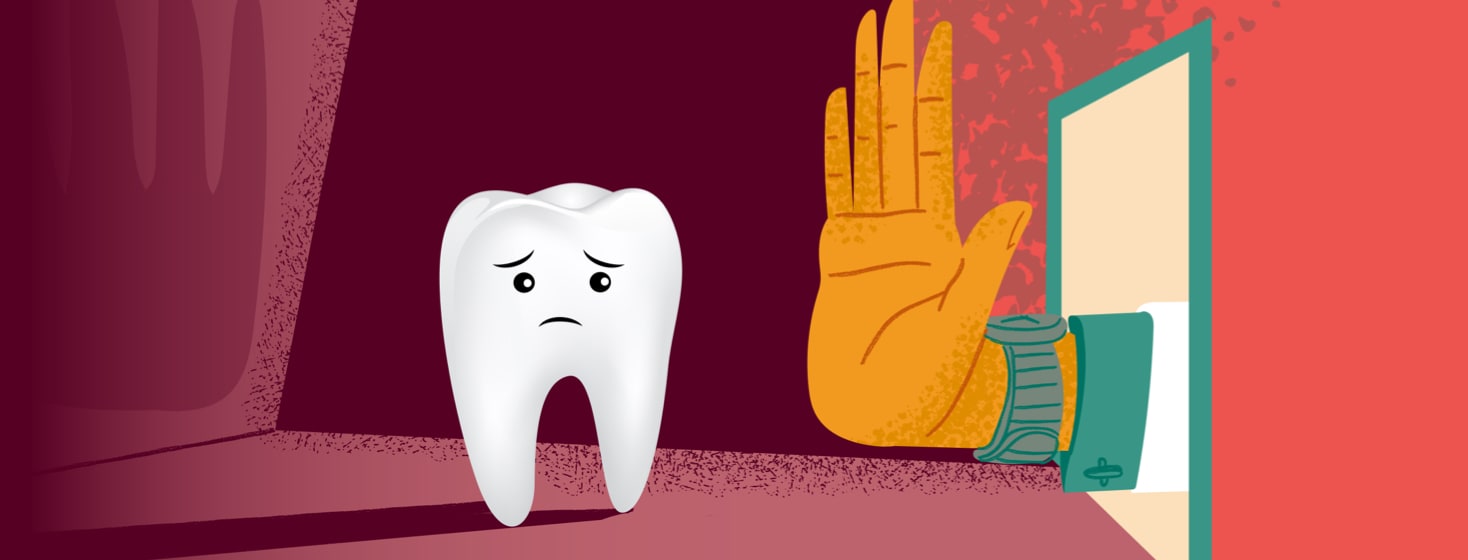Discrimination Situation
Around five years ago, I had a throbbing toothache. I had no idea what was wrong other than my face hurt and my tooth hurt. We had just moved to Ohio, and I didn’t have a dentist picked out nor was I established anywhere.
So, I randomly picked one that was close to my home and had an accessible entrance. I called to book my appointment and make sure they would be able to accommodate me in my power wheelchair. They said, “Of course, no problem at all!” After that, I booked my appointment to come in for an exam. When making the appointment, I hadn’t foreseen any issues because every dentist I’ve been to as a child has been able to accommodate my disability needs.
This dentist could not accommodate my needs
I figured this was no different. Boy, was I wrong.
I arrived at my appointment and waited well past the scheduled time before they took me back.
After a quick mouth exam, she informed me of a cavity and a potential need for a root canal if not fixed promptly. The tooth required filling to avoid loss. She then proceeded to tell me, “I’m not comfortable doing your dental work standing up; you’ll have to go somewhere else to be seen.”
The dentist didn't care
My mom and I explained that I’d always had my care done in my chair and that I couldn’t safely be transferred without a hoyer lift. The dentist didn’t care. She had zero empathy or compassion for my plight. She was concerned it would be too uncomfortable for her, even though my chair did exactly what her dental chair did. So, due to my spinal muscular atrophy (SMA) and inability to be able to be moved over to a dental chair, I was being denied care.
Her hygienist assistant offered solutions and ideas on how we could make it work but the dentist didn’t care. In that moment, I felt upset. I had to venture out during the pandemic peak, risking my health, to a place that claimed no issues accommodating me.
Yet, I left with a toothache and tears.
Discrimination leads to medical trauma
Later that night at home it dawned on me that what I had experienced was discrimination. I went back and forth in my mind thinking there was no way that’s what was happening, but it was. This person did not want to help me the moment she saw my chair. I saw it on her face and felt it in her body language.
That day is still something I think about often because in a way it was traumatic. Medical trauma from doctors and dentists is very real and very rampant. It has made me more aware of what to watch out for when dealing with medical professionals in the future. It also made me value the doctors on my care team who do go above and beyond to make sure I get the care I need, how I need it. Fight for your care and if you don’t connect with a doctor or dentist you have every right to move on to the next.
Feeling marginalized
That experience at the dental office will remain in my memory. It serves as a stark reminder of the challenges individuals with disabilities face when seeking medical care. It was a discriminatory moment, leaving me marginalized and upset, highlighting the medical trauma many endure.
Despite the setback, I eventually found another dental provider, though the delay in treatment led to complications down the line. They were much more accommodating and had no problem doing my root canal.
Reflecting on this experience reinforces the importance of advocating for equal healthcare access as per the ADA. It's a reminder that all voices matter, and everyone deserves equal care and respect, regardless of ability.

Join the conversation